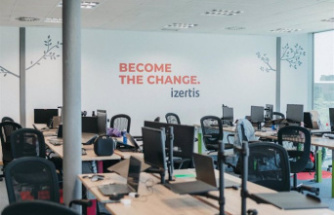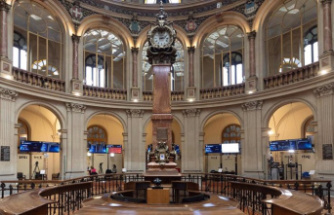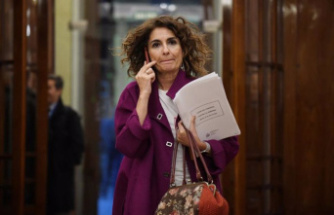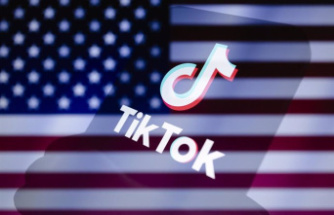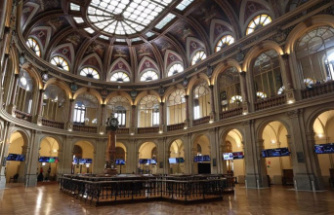Minnesota’s been quiet lately when it comes to school-choice innovation.
Families embrace the tried-and-true: open enrolling their children to other districts or placing them in a growing array of charter schools.
But now, Republican legislators say, it is time to bring private schools back into the mix.
Proposals are advancing in the state House and Senate to make tax credits available to parents for private-school tuition and to individuals and corporations who donate to foundations to offer K-12 scholarships to kids. Old lines are being drawn — the toxic “v” word (for vouchers) has been invoked — all while a controversial school choice advocate comes to power in Washington, D.C.
Opponents decry the steering of public money to the benefit of private and parochial schools. In a recent news release, Education Minnesota joined union and neighborhood activists in declaring the tax-credit proposals to be a “false promise to communities of color — they are unaccountable, irresponsible and discredited.”
But supporters of the legislation say kids who have struggled at home or at school deserve as many choices as possible to get on track academically. Leila Navidi - Star Tribune Second-grader Alexandria Hill, above, did some serious reading at Ascension Catholic School in north Minneapolis.
“[We’re] just trying to help the kids who need it the most,” said Rep. Ron Kresha, R-Little Falls, chief author of one of two tax-credit-related bills heard last week.
Ascension Catholic School in north Minneapolis would be a beneficiary, said Principal Benito Matias. On Friday Matias walked through a sixth-grade class where students were learning about run-on sentences.
The school, where almost 80 percent of the student body qualifies for lunch subsidies, boasts some of the highest test scores in its high minority, low-income neighborhood.
But the posted tuition is $1,400. Thanks to scholarships and fundraising, Matias said, kids pay an average of $200 each.
“We may be able to increase the number of scholars that receive those scholarships, therefore increasing the number of scholars we’d be able to serve,” Matias said.
New strategy for choice
Minnesota was once a national leader in educational choice. In the mid-1980s, it was the first state to approve open enrollment, which allows students to cross school district lines. In 1991, it became the first state to approve charter schools.
Even if the push for expanded tax credits succeeds, the state has fallen behind the school choice curve.
Mike Griffith, school finance strategist for the Education Commission of the States in Denver, said that vouchers, tax credits and scholarship donations are giving way to a new strategy: Education Savings Accounts (ESAs). Under that system, the states deposit money — typically based on each state’s per-pupil funding amount — in private accounts that are managed by parents. The money can be used for services like tutoring but also for private school tuition, essentially making it a voucher, a state-funded scholarship that allows students to attend private and parochial schools.
“My guess is that at some point that will be an issue that comes up in your state,” Griffith said last week.
Minnesota has allowed a tax deduction for private school tuition and textbooks for more than 60 years. But a tax credit is more valuable in terms of its return on tuition payments.
Battles over the creation of a tax credit for private school tuition go back at least 20 years, when Republican Gov. Arne Carlson felt so strongly that he vetoed a K-12 funding bill to pursue one — unsuccessfully — in a special session. Looking back in an interview last week, he could not recall what derailed it, but suspects it may have been “too direct,” coming just a year after he proposed bringing vouchers to the state.
Asked about Kresha’s scholarship donations strategy, Carlson said: “If it can pass the religion test, the more we can do to open up competition, the better off we are. ... Suffice it to say that we’ve created a lot of bogeymen [with vouchers], and used that to protect the status quo.”
Questions and tensions abounded after Betsy DeVos’ confirmation as U.S. education secretary last week.
DeVos has been a staunch supporter of school choice, including for-profit charter schools and voucher programs, as a billionaire philanthropist in Michigan.
The Minnesota Association of Charter Schools opposes for-profit charter schools and is supporting legislation that would bar them in Minnesota, said Executive Director Eugene Piccolo.
“The focus should be on serving kids and providing kids a quality educational experience, not on a stockholder’s bottom line,” Piccolo said.
Some point out that Michigan’s charter schools — mostly schools run by for-profit companies — produce dismal test scores.
But Minnesota charter schools also vary widely on statewide tests, from well above average to well below. In Minneapolis, for example, Friendship Academy of the Arts was honored nationally for its high performance, but LoveWorks Academy for Arts had only about 10 percent of students proficient in math last year.
New fight
At the State Capitol Thursday, Kresha and state Rep. Jim Knoblach, R-St. Cloud, appeared before the House Education Finance Committee with separate tax credit bills.
Knoblach had proposed tuition tax credits before, when the projected cost was about $26 million. Kresha’s bill calls for the state to set aside $35 million a year for credits tied to scholarship donations, with maximum credits of up $21,000 a year for married couples and $105,000 for corporations.
Kresha and Knoblach listened as representatives of the state’s school administrators and school boards, and metropolitan and rural school districts, all testified against the proposals.
DFL representatives said studies elsewhere have shown the tax credits were used primarily by middle- and upper-income families. Rep. Carlos Mariani, DFL-St. Paul, said he would expect a legal challenge to any parochial-school tax credits.
Former state Rep. LeRoy Koppendrayer, testifying on behalf of Knoblach’s bill, spoke of being in office when Carlson vetoed the 1997 K-12 bill.
Knoblach seized on the moment: A “yes” vote for his bill, he said, was a vote against a special session.
Our editors found this article on this site using Google and regenerated it for our readers.


